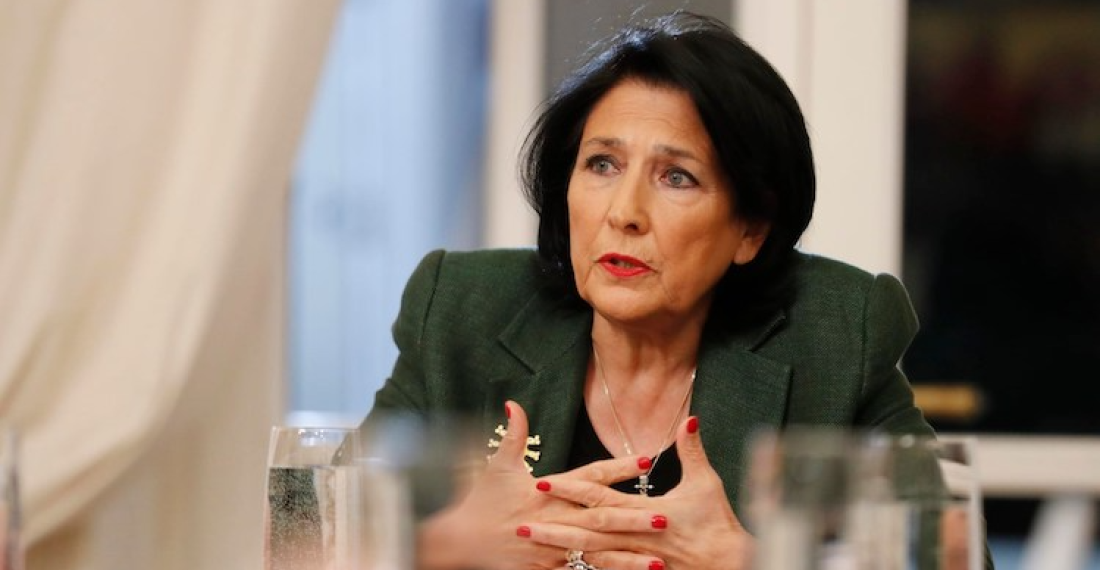In a recent interview with Bloomberg on 1 February, Georgian President Salome Zourabichvili for the first time stated that the diplomatic settlement to end the Russian Federation's full-scale war against Ukraine should include the withdrawal of Russian troops from the Georgian territories of Abkhazia and South Ossetia, which have been under Russian control for 30 years.
She called for the Georgian issue to be put on the negotiating table, asserting that a resolution to the Russia-Ukraine war cannot be achieved without Russia's retreat from all the occupied territories.
President Zourabichvili highlighted the need for Russia to "learn where its borders are" and underscored the importance of the Western world making sound decisions. She emphasised that following the anticipated defeat of Russia in Ukraine, the Russian Federation will be obliged to return not only the occupied territories to Ukraine, but also returning occupied territories to Georgia. The President cautioned that if the West fails to demand a full withdrawal of Russian troops as part of surrender terms, it would be making a grave error akin to the mistakes made in 2008 and 2014.
Zourabichvili's call is a significant departure from previous positions
The President's call for the withdrawal of Russian troops from Georgian territories comes at a time when tensions between Georgia and Russia remain high. In 2008, Russian troops invaded Georgia and occupied one-fifth of its territory, leading to the Russian Federation's recognition of Abkhazia and South Ossetia as independent states, which have not been recognized by the international community. The Russian military claimed that the operation was aimed at "forcing peace".
It is worth noting that President Zourabichvili's recent call for the withdrawal of Russian troops from Georgian territories represents a significant departure from the Georgian government's previous position on this issue. The ruling Georgian Dream party has traditionally been more cautious on this matter, and the president's statements may reflect a growing sense of urgency among Georgians to end Russia's long standing occupation, particularly in light of Russia's faltering offensive in Ukraine.
This marks the first time in recent memory that a high-ranking Georgian official has expressed such a strong stance on the issue of de-occupation, suggesting a possible shift in the country's approach to the issue.







